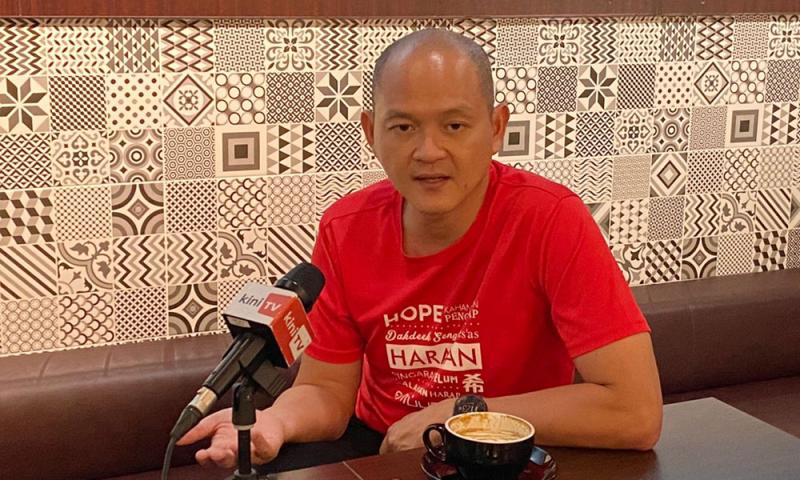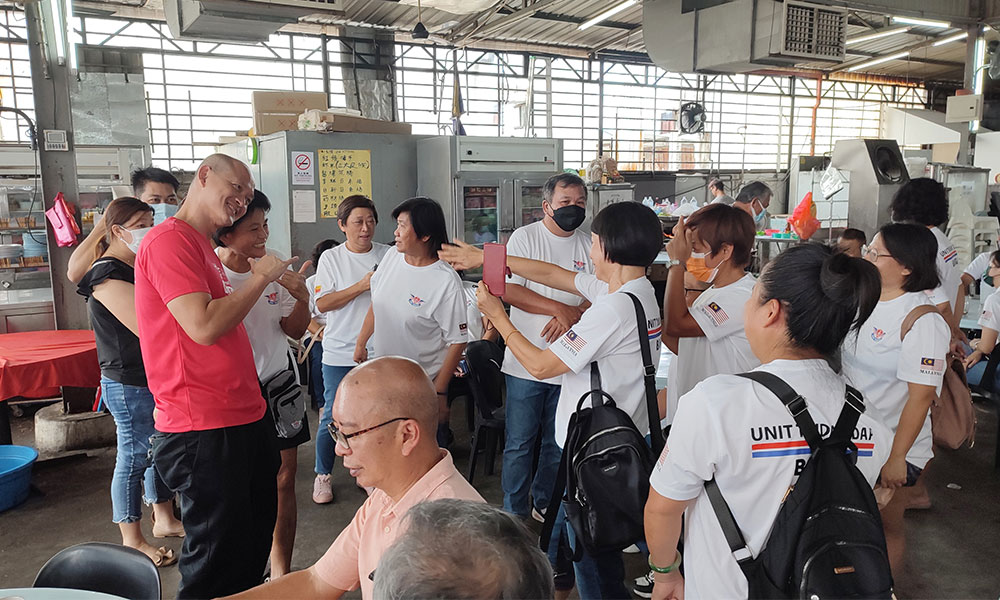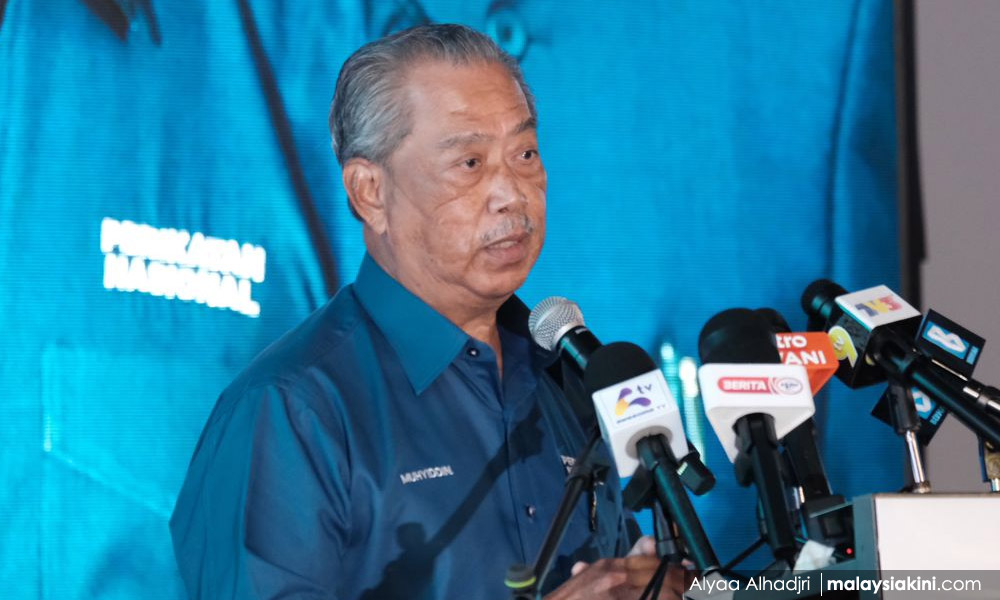
The writing's on the wall, says Kian Ming on failure to make CEC cut
INTERVIEW | Bangi MP Ong Kian Ming’s shocking decision to not defend his seat is believed to be widely attributed to his failure to retain his seat in DAP's central executive committee (CEC).
His performance in the party leadership election was unexpected since he was once considered a trusted confidante of Lim Guan Eng when the latter was secretary-general. Ong was even briefly one of Lim’s aides when the latter was finance minister.
In a recent interview with Malaysiakini, Ong said that failing to make the CEC was part of the reason but insisted that he had already made up his mind prior to the party's leadership election in March.
‘Perhaps I pushed too hard’
Reflecting on the party polls, Ong said he foresaw his defeat.
“I think one of the reasons I was not elected was because of the way I presented myself to the other DAP leaders, especially the MPs. Perhaps I was a bit too aggressive after the Sheraton Move.
“There were a lot of opportunities for DAP to change its image (after the Sheraton Move) and for our leaders to be part of that change.
“I was pushing very hard internally for us to do more and I think this may have been interpreted by some (senior) leaders as me being kurang ajar, somebody that is ‘too smart’ or think he is better than everyone else,” said Ong.
Ong was a well-known academic, famous for his election modelling work which presented somewhat accurate predictions of by-elections, before joining DAP in 2012.

Ong speaking to party supporters during his interview with KiniTV
He quickly rose up the party ranks and was appointed deputy international trade and industry minister during Dr Mahathir Mohamad's 22-month second stint as prime minister, thereby leapfrogging many senior DAP MPs.
Together with Damansara MP Tony Pua and Bakri MP Yeo Bee Yin, they were known as DAP's “Oxbridge trio”, referring to their elite educational background as having graduated either from Oxford or Cambridge.
Call for CSA with govt a friction point
Ong said he apologised to those in the party whom he had slighted and felt that he had overstepped as a “relatively junior” two-term MP.
“I had good intentions. If DAP as a whole can come together then the party would be much stronger and our image will also improve in the larger community and the larger electorate.
“That ultimately would be able to help us get back into power at the federal and state level,” he said.
Ong agreed that his advocacy for a confidence-and-supply agreement during the final days of Muhyiddin Yassin’s prime ministership was one of those points of friction within the party.
He quickly rose up the party ranks and was appointed deputy international trade and industry minister during Dr Mahathir Mohamad's 22-month second stint as prime minister, thereby leapfrogging many senior DAP MPs.
Together with Damansara MP Tony Pua and Bakri MP Yeo Bee Yin, they were known as DAP's “Oxbridge trio”, referring to their elite educational background as having graduated either from Oxford or Cambridge.
Call for CSA with govt a friction point
Ong said he apologised to those in the party whom he had slighted and felt that he had overstepped as a “relatively junior” two-term MP.
“I had good intentions. If DAP as a whole can come together then the party would be much stronger and our image will also improve in the larger community and the larger electorate.
“That ultimately would be able to help us get back into power at the federal and state level,” he said.
Ong agreed that his advocacy for a confidence-and-supply agreement during the final days of Muhyiddin Yassin’s prime ministership was one of those points of friction within the party.

Former prime minister Muhyiddin Yassin
“It may have been interpreted by some leaders as me stepping out of line as in I suggested something that was not in accordance with what the party leadership was thinking or advocating for.
“If that contributed to me losing or not being elected to the CEC, then I accept it and hope I have learned from those mistakes,” he said.
Contributing and adding value
Asked if he believed DAP delegates were more inclined to vote based on loyalty to party leaders than on merit, Ong said the “cai dan” culture plays a large role in how the party elects its leaders.
He explained that there are now 30 seats in the CEC and thus many party delegates will prefer to follow a “cai dan” (voting guide) laid out by their leaders.
Ong said he accepted the pros and cons of the “cai dan” culture but he was disinclined to embrace it.
“If I played my game differently, I would have been on more ‘cai dan’. But I did not join politics with the intention of staying on forever.
“It’s always about trying to contribute and adding value. When the time is right, the next generation must take over and I will take on a different role,” he said.
“It may have been interpreted by some leaders as me stepping out of line as in I suggested something that was not in accordance with what the party leadership was thinking or advocating for.
“If that contributed to me losing or not being elected to the CEC, then I accept it and hope I have learned from those mistakes,” he said.
Contributing and adding value
Asked if he believed DAP delegates were more inclined to vote based on loyalty to party leaders than on merit, Ong said the “cai dan” culture plays a large role in how the party elects its leaders.
He explained that there are now 30 seats in the CEC and thus many party delegates will prefer to follow a “cai dan” (voting guide) laid out by their leaders.
Ong said he accepted the pros and cons of the “cai dan” culture but he was disinclined to embrace it.
“If I played my game differently, I would have been on more ‘cai dan’. But I did not join politics with the intention of staying on forever.
“It’s always about trying to contribute and adding value. When the time is right, the next generation must take over and I will take on a different role,” he said.

Ong (in red cap) participating in relief efforts in Balakong during flash floods in December 2021
Ong said that upon the expiry of his term, he plans to take a two-year break from politics to resume research, writing and teaching.
He reaffirmed that this was not a case of sour grapes as he has total confidence in the new party leadership and that of new secretary-general Anthony Loke.
“What saddens me the most is that in making my decision I won’t be able to support Loke as a frontliner for DAP,” said Ong.
Apart from Ong, veteran DAP leaders Lim Kit Siang and Teng Chang Kim have also announced that they will hang up their boots once their term is over.
Ong said that upon the expiry of his term, he plans to take a two-year break from politics to resume research, writing and teaching.
He reaffirmed that this was not a case of sour grapes as he has total confidence in the new party leadership and that of new secretary-general Anthony Loke.
“What saddens me the most is that in making my decision I won’t be able to support Loke as a frontliner for DAP,” said Ong.
Apart from Ong, veteran DAP leaders Lim Kit Siang and Teng Chang Kim have also announced that they will hang up their boots once their term is over.
DAP is returning to its Red Neck base, and basically retreat to its safe seats. In 10 years time , it may be left with 10 seats...but its traditional base will have regained their fervour.
ReplyDelete